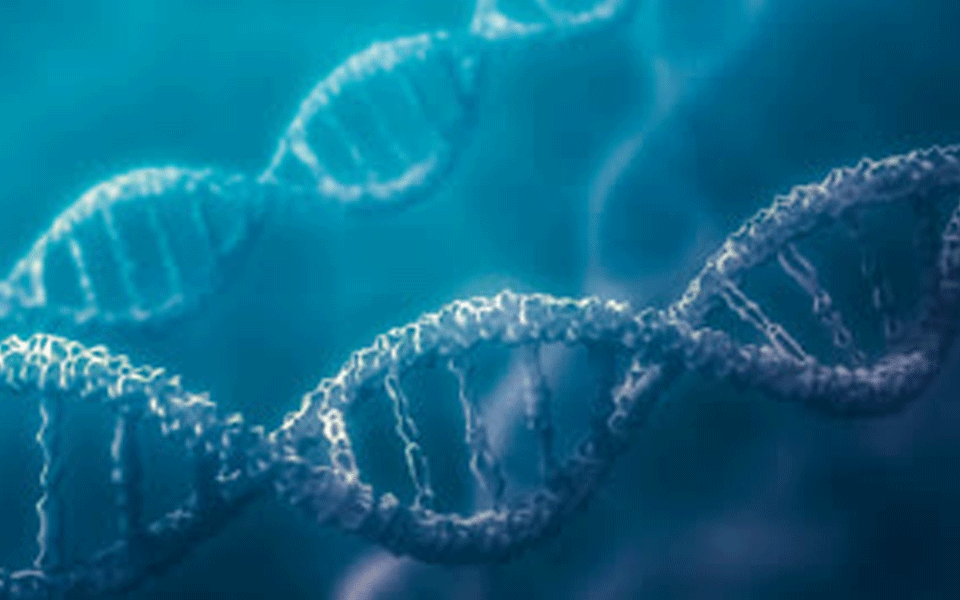New York, Sep 22: In a first, US researchers have identified a new genetic disorder, which was previously described in animal models, in a human patient.
Researchers from the Michigan State University found that the disorder is caused by mutations in a gene known as ornithine decarboxylase 1 (ODC1).
It is defined by a number of clinical features including large birth weight, enlarged head size, hair loss, reduced muscle strength, skin lesions, hearing loss and developmental delays.
"This remarkable case represents the first human example of a disorder that was described by researchers in a transgenic mouse model more than 20 years ago," said Andre Bachmann, Professor at the varsity.
However, the disorder is, as of yet, unnamed, and its long-term effects, which include impacts on the neurological system, are not completely known.
The disorder was first identified on an 11-month-old baby girl in Michigan.
In the study, published in the American Journal of Medical Genetics Part A, blood samples for testing were drawn at age 19 months and 32 months.
Two developmentally normal, age/gender matched patients that were being sedated for outpatient same-day procedures served as controls.
Red blood cells obtained from the patient showed elevated ODC protein and polyamine levels compared to healthy controls.
"The ODC1 gene plays an important role in a number of physiological and cell developmental processes including embryo and organ development," said Caleb Bupp, medical geneticist at Spectrum Health -- a US-based health care company
The study also showed that the ODC inhibitor DFMO -- a water soluble -- and US Food Drug Administration (FDA)-approved drug may serve as a disease-modifying drug, and an early therapeutic trial in a new diagnosis may prevent some of the clinical symptoms.
DFMO has been used for many years in the treatment of trypanosomiasis -- a tropical disease transmitted by biting insects and more recently entered clinical trials for pediatric neuroblastoma and colon cancer.
In mice, DFMO prevented hair loss and also partially restored hair growth and is considered a well-tolerated drug.
The original ODC1 mouse model was developed by Thomas G. O'Brien in 1995 at the Lankenau Medical Research Centre in Pennsylvania.
Let the Truth be known. If you read VB and like VB, please be a VB Supporter and Help us deliver the Truth to one and all.
Ottawa (PTI): Three Indian nationals have been arrested by Canadian police on an anti-extortion patrol and charged after bullets were fired at a home.
Harjot Singh (21), Taranveer Singh (19) and Dayajeet Singh Billing (21) face one count each of discharging a firearm, and all have been remanded in custody until Thursday, the Surrey Police Service (SPS) said in a statement on Monday.
The suspects were arrested by patrol officers after an early morning report of shots fired and a small fire outside a home in Surrey's Crescent Beach neighbourhood, the LakelandToday reported.
On February 1, 2026, the SPS members were patrolling in Surrey’s Crescent Beach neighbourhood when reports came in of shots being fired and a small fire outside a residence near Crescent Road and 132 Street.
The three accused were arrested by SPS officers a short time later, the statement said.
SPS’s Major Crime Section took over the investigation, and the three men have now been charged with Criminal Code offences, it said.
All three have been charged with one count each of discharging a firearm into a place contrary to section 244.2(1)(a) of the Criminal Code.
The investigation is ongoing, and additional charges may be forthcoming. All three have been remanded in custody until February 5, 2026.
The SPS has confirmed they are all foreign nationals and has engaged the Canada Border Services Agency, it said.
One of the suspects suffered injuries, including two black eyes, the media report said.
Surrey police Staff Sgt. Lindsey Houghton said on Monday that the suspect had refused to comply with instructions to get out of the ride-share vehicle and started to "actively resist."
"As we were trained, he was taken to the ground and safely handcuffed," said Houghton.
A second suspect with a black eye was also injured in the arrest after refusing to comply, Houghton said.
The arresting officers were part of Project Assurance, an initiative that patrols neighbourhoods that have been targeted by extortion violence.
Houghton said the Canada Border Services Agency (CBSA) is also involved because the men are foreign nationals, and the trio may face additional charges.
It's not clear if the men are in the country on tourist visas, a study permit, or a work permit, but Houghton said CBSA has started its own investigation into the men's status.
Surrey has seen a number of shootings at homes and businesses over the last several months, but there's been an escalation since the new year.





